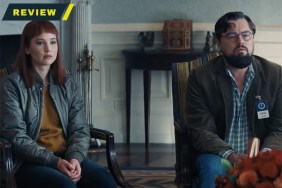Partial Cast List:
Leonardo DiCaprio, Narrator
Ray Anderson, Founder of Interface Inc.
Kenny Ausubel, Founder of Bioneers
Janine Benyus, Author of “Biomimicry”
Lester Brown, President of Earth Policy Institute
Tim Carmichael, President of Coalition for Clean Air
Sylvia Earle Ph.D., Oceanographer
Gloria Flora, Director of Sustainable Obtainable Solutions
Michel Gelobter, President of Redefining Progress
Mikhail Gorbachev, Founding President of Green Cross International
Thom Hartmann, Author of “The Last Hours of Ancient Sunlight”
Paul Hawken , Author, Environmentalist and Entrepeneur
Stephen Hawking, Lucasian Professor of Mechanics
Wes Jackson, President of The Land Institute
Wangari Maathai, Founder of Greenbelt Movement
William McDonough, Architect
Bill McKibben, Author, Founder of Stepitup07.org
Wallace J. Nichols, Senior Scientist of The Ocean Conservatory
David Orr, Chair of the Environmental Studies Program, Oberlin College
David Suzuki, Scientist, Environmentalist, Broadcaster
Andrew Weil, Director of Program for Interactive Medicine at University of Arizona
James Woolsey, Former director of CIA 1993 1995
Directed by Nadia Conners and Leila Conners Petersen
Summary:
A well-made talking heads doc, “The 11th Hour” takes a doom and gloom approach to the earth’s current plight, but it also offers a ray of hope and intelligent solutions for making a change, hopefully not too late to make a difference.
Story:
This comprehensive documentary examines how the very presence of man on earth has made it so the planet may one day soon be completely uninhabitable, hence the film’s title, which states that the earth as we know it is in its 11th hour.
Analysis:
As surprising as it is that it took an ex-Vice President to convince Americans that global warming was a serious problem which needed to be addressed, “An Inconvenient Truth” only was one part of the equation. What the Oscar-winning doc began last year, “The 11th Hour” continues, taking a very different tact, one that might not be nearly as effective at getting its message across, but deserves respect for making the effort.
The gist of the film’s thesis paper centers around how the enormous population growth in the last forty years is killing the planet, particularly because man’s greed and desire to expand and grow has destroyed many of the earth’s defenses against natural disasters. It’s an intelligent and solidly-constructed documentary that collects dozens of interviews with scientists and experts who corroborate that the very existence of humankind is what’s destroying the planet and making it uninhabitable for life. These interviews are cut together with gorgeous and often harrowing images of the planet and accompanied by a haunting ambient score, and every once in a while, producer Leonardo DiCaprio shows up to add his two cents, ably reading them from cue cards. It’s almost too comprehensive in the amount of ground it covers, as it ties together many environmental hot topics like Hurricane Katrina, the melting polar ice caps and the destruction of the Brazilian rainforests, going into depth of why they’re important at reducing the floods that have ravaged so much of the globe.
It’s very much a talking heads movie, but at least it has something to say and it doesn’t talk down to its viewer. That said, it’s not exactly packaged for the layman or woman i.e. the average Joe or Jill who might get the most out of this information either. Instead, it’s a film so full of techno-babble and eco-jargon that you’d have to be a MENSA member to really understand half of what is being said, and it’s more likely to have an impact on businessmen or politicians who may be able to enact the necessary changes warranted. Even Leonardo DiCaprio’s scripted bits seem too smart for the film’s purposes– they’re more like a college lecture–and it’s sorely lacking what Al Gore brought to “An Inconvenient Truth,” a charming and charismatic spokesman that can sell the ideas and offer the spoonful of sugar needed to help the medicine go down. It’s a shame because there are many important facts and figures here, but they may be too much for one person to absorb without completely zoning out.
The movie spends most of its time going over all the problems and how many of them are irreparable, but just as you’re about to slit your wrists, the movie suggests there may still be time for people to change their habits and make a difference. It proceeds to offer smart solutions in its last act, which can’t be said about “An Inconvenient Truth” which waited until the end credits when most people would be walking out of the theatre. By the point that “The 11th Hour” changes gears, it’s unlikely that anyone who’s sat through the first hour will be so numbed by what was said to not want to get involved and take action, so the movie does end on a note of optimism and hope, one that’s far more positive and fulfilling than all the earlier doom-mongering.
Unfortunately, the people who really need to see this movie and make changes, those who continue to wantonly destroy the earth and its environment, will probably never see this movie, and even if they do, it’s not likely they’ll understand enough to realize importance of making those changes. For everyone else, you’ll just have to accept the fact that the end is nigh.










